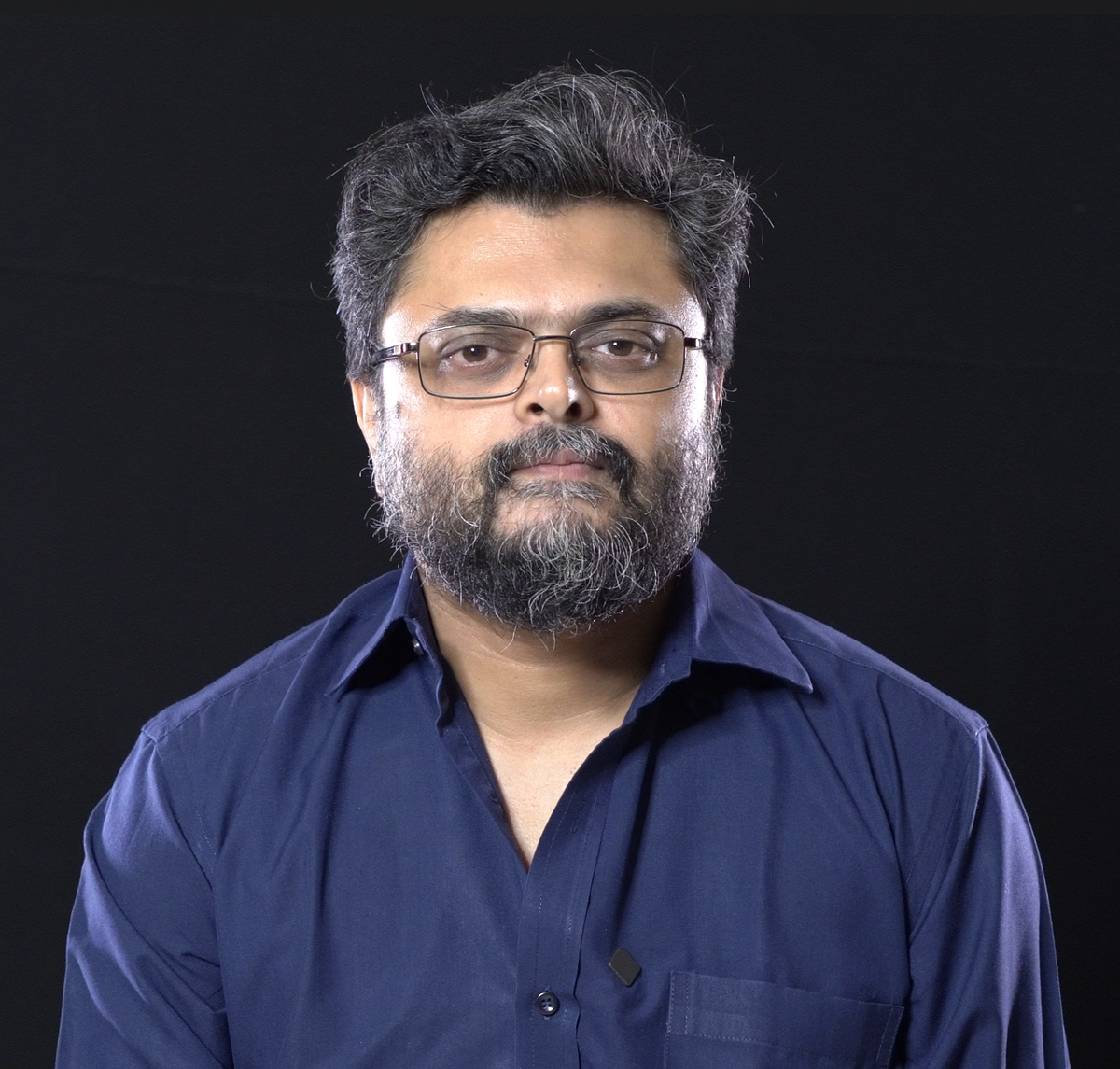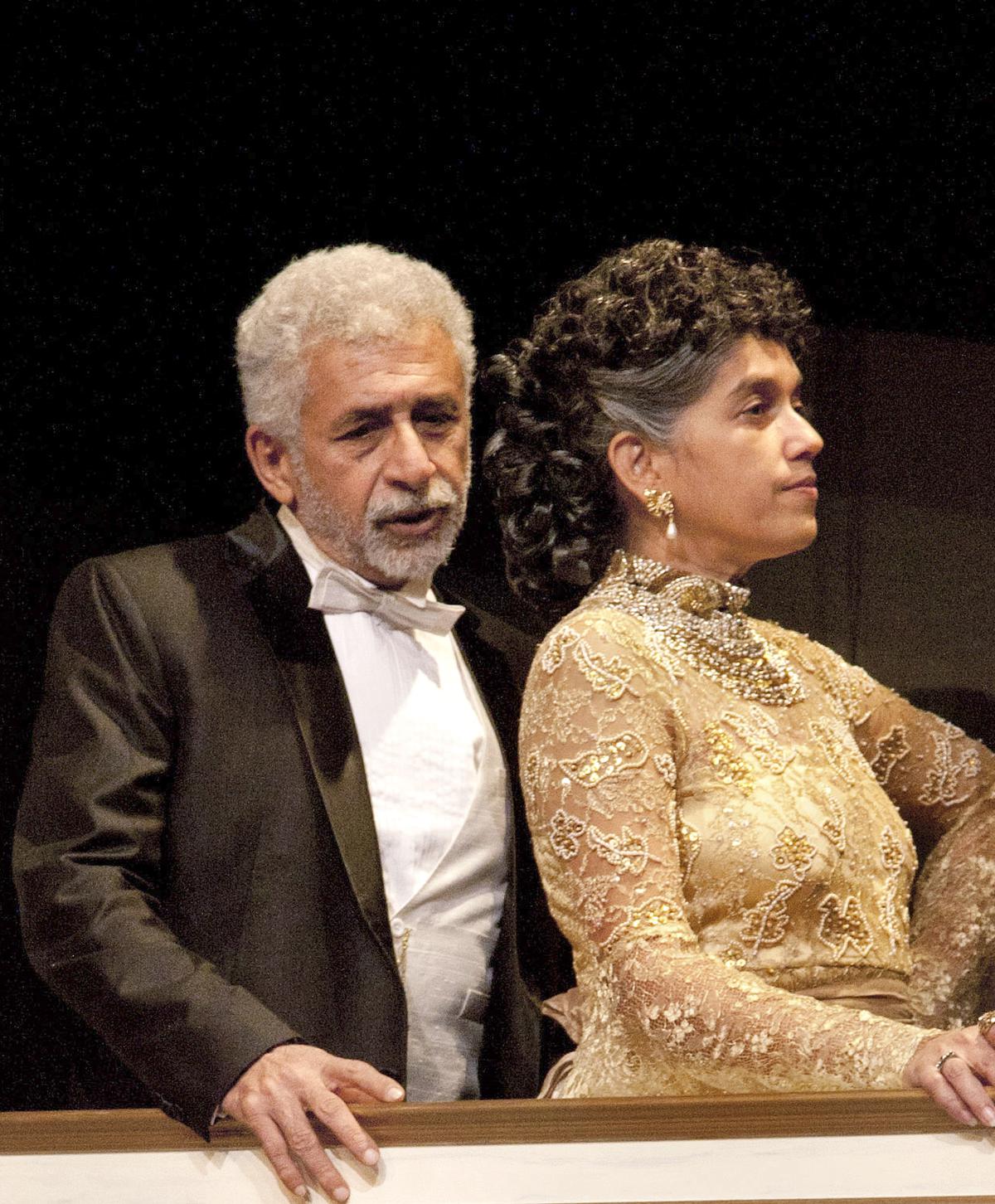When Naseeruddin Shah thought of staging Russian playwright Aleksei Arbuzov’s 1977 work Old-World, he approached leading light designer Arghya Lahiri to direct it. Besides working with productions of Naseer’s Motley Theatre Group for a decade, Arghya was also associate director of Motley’s famous play Einstein. When he heard that the veteran actor would be joined by his wife Ratna Pathak Shah in the new play, he found the prospect very exciting.
In Old-World, Rodion (played by Naseer) is medical head of a sanatorium, and Lydia (Ratna) has arteriosclerosis, a condition involving build-up of fats, cholesterol and other substances in and around the artery walls. She is no ordinary patient, and the play follows with warmth and gentle humour the mutual growth of interest and liking to lasting affection between two lonely people.
Translated into English by Ariadne Nicholaeff, Old-World is being staged over three shows on November 4 and 5 as part of the 11-day Prithvi Theatre Festival at the prestigious venue in Juhu in Mumbai. Naseer himself doesn’t speak much, as he’s focusing on the rehearsals. His answers come in short one-liners. He says his approach to the role was “by learning the lines and not bumping into the furniture”.
Naseeruddin Shah
| Photo Credit:
S. Subramanium
For her part, Ratna says she had seen Old-World many years ago though she couldn’t remember much of it. She adds, “I had read the script long ago, but when Naseer decided to fix on the idea of doing this play, I re-read the script and found that it had great possibilities. It was a play that spoke to me at this stage of my life. Arghya and I started reading together, sometime in April or May, and more seriously since August to make discoveries about the characters.”
Going by his experience with Motley, Arghya’s approach has been the same across productions. He elaborates. “There’s a lot of reading and conversation to begin with, trying to understand the text, and each other. Over time, we focus on specific moments, and scenes. Both Naseer and Ratna like to begin well in advance so the text gets under your skin over time, as opposed to a project we pick up six weeks or a month from the show.”
Ratna Pathak-Shah at an event in Mumbai
| Photo Credit:
Emmanual Yogini
According to Ratna, Old-World might not be the kind of play Arghya would choose for himself. “Luckily he found it interesting and it’s been a thoroughly enjoyable process. He doesn’t want to over-direct, and he kept saying this really is a conversation between two characters. But his insights were very useful In terms of what he had to say about the conversation.”
For Arghya the effort has been to stay as true to the spirit of the original as possible. He adds, “What it speaks about is universal. It’s a shame that we’re still grappling with the issues raised by the play when it was first written — the legitimacy of the lives and loves, desires and foibles of older people. It’s something I’ve become very aware of over the past decade or so — that my parents’ generation is grappling with so much as they age. They aren’t just repositories of advice and anecdotes. They are flesh and blood, and they feel just as keenly as we do. Sometimes even more.”

Arghya Lahiri, who has been associated with Motley theatre group for a decade, is the director of Old-World.
| Photo Credit:
Special Arrangement
Over the past few years, Naseer has done different stage roles revolving around senior citizens. In The Father, based on a French play by Florian Zeller, he plays a man with Alzheimer’s . In Einstein, he plays the absent-minded German scientist to perfection. “All roles have been difficult but fun to do,” he says. While keeping the theatre flag going, the actors have continued with film and OTT projects. Over the past few weeks, they both appeared in Vishal Bhardwaj’s series Charlie Chopra & The Mystery of Solang Valley, and Ratna has got acclaim for her role in Tarun Dudeja’s film Dhak Dhak, which is about four women setting out on an adventurous road trip.

Naseeruddin Shah and Ratna Pathak-Shah in a scene from Dear Liar.
| Photo Credit:
Special Arrangement
Ratna has been working with Naseer since 1975, first meeting during the rehearsal of Satyadev Dubey’s Sambhog Se Sanyas Tak. The plays they have done together include Satyadev’s Dear Liar and Naseer’s Ismat Apa Ke Naam. She says, “I can honestly say that I have learnt most of what I know about acting working with him, watching him work, watching him conduct workshops, being part of them. Naseer as a director is wonderful for a play like Ismat Apa Ke Naam, which clarified my ideas about acting, the craft of it and the purpose of it. For me, Ismat Apa and Dear Liar have been colleges of acting. Schools were the other plays I did before.”
Over the years, Motley has staged many plays at Prithvi. Its debut, Samuel Beckett’s Waiting For Godot was staged there in 1979. The group was conceived in a Lucknow coffee shop by Naseer and Benjamin Gilani, and after sticking to English theatre, it ventured into Hindi and Urdu. Says Ratna, “I think today, Motley is quite language-agnostic. We want to do good plays. The language does not guide the choice. The choice is in the content.”
The iconic Prithvi Theatre in Mumbai
| Photo Credit:
Special Arrangement
Describing Prithvi as the beating heart of theatre in Mumbai, Ratna says it has helped an audience to grow. “Earlier, there would be 10 or 15 people in the auditorium. Now almost every show is houseful.” In a lighter vein, Naseer adds, “Today, Prithvi audiences laugh a lot more than they used to.” However, they agree that for the larger theatre groups, things are not commercially viable today. “Television and OTT have really eaten into the audiences. The pandemic made things really bad. But I also believe there has been a flexibility of ideas in terms of presenting theatre. Today people do theatre anywhere, from the auditorium, to a drawing room, garden, street or black box,” says Ratna.
Arghya, who has been associated with youth theatre platform Thespo for 25 years, says the problem is never about people wanting to be actors. “The problem is the other areas. Who will write? Who will direct? Manage the stage and lights? Produce? Still, work gets done. Some are brave. Some are extraordinary,” he says. Despite all the challenges, the passion keeps the flame burning.
What’s playing at Prithvi?
Apart from brand-new plays, the 38th edition of the Prithvi Theatre Festival will feature music concerts and a dance performance. The theatre events begins on November 4. Besides Old-World, the other English plays include Akvarious Productions’ This Time, written and directed by Akarsh Khurana (November 8), and Water Lily’s Red, directed by Daniel Owen D’Souza (November 10). Adishakti’s Urmila, directed by Nimmy Raphael, will be in English, with a sprinkle of Kannada, Malayalam and Tamil. It will be staged on November 11.
The Hindi plays include D For Drama’s Purane Chawal, directed by Sumeet Vyas (November 7), and Ansh Theatre Group’s Manushya, directed by Makarand Deshpande (November 12).
The opening night, November 3, is for invitees only. Singer Shubha Mudgal will present love poetry based on the Sufi-Bhakti tradition. She will be accompanied by Aneesh Pradhan on the tabla. The ticketed music events include a performance by the Symphony Orchestra of India on November 6 and a jazz performance, Jazz@Prithvi, curated by Louiz Banks on November 13. To add a dance flavour, Prithvi Nayak will present an Odissi recital on November 9.
There will also be masterclasses, stage-talks and fringe plays by younger directors.